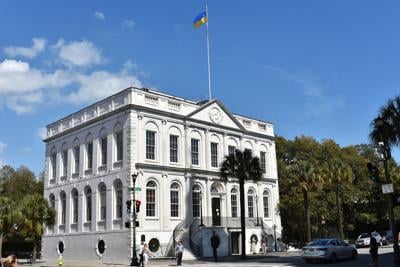Many elected leaders say we should run government more like a business, but that’s often not possible or even preferable: Governments rightly must act transparently and even-handedly, such as taking competitive bids for goods and services. In other ways, however, governments can emulate some best practices of successful businesses, specifically by trying to improve their services by gathering good data, analyzing it and adjusting accordingly.
Successful businessman and former New York Mayor Mike Bloomberg has emphasized this point, and Charleston Mayor John Tecklenburg has listened.
And it's helped. Even those familiar with the city's drainage and flooding woes might never have heard of FloodStat, an internal database that has standardized how departments track flood rescues. The initiative, begun around 2020 after the city sought input from Dutch experts and began making other changes after a series of serious floods a few years earlier, allows police, fire and other first responders to approach these rescues in a more coordinated fashion.
It was a slow, incremental process, beginning with the realization that the city had no good data on flood rescues because police and firefighters recorded them in different ways. That was changed to a uniform system, and the city now has about two years of specific locations where these sorts of rescues have taken place. With that data linked to information about daily rainfall, winds and tides, city officials know when and where to close streets just before bad weather might arrive and flood them. And the city soon will try to get even more data by asking anyone rescued from a stalled car or knee-deep water to take a voluntary survey.
This kind of data crunching is what helped the city earn a Silver Certification from What Works Cities, a Bloomberg Philanthropies-led effort to help city governments implement data-driven solutions to their own challenges.
Charleston is one of seven cities recently singled out for this honor, along with Carlsbad, Calif., and five South American cities: Buenos Aires, Argentina; Córdoba, Argentina; Fortaleza, Brazil; Mogi das Cruzes, Brazil; and Montevideo, Uruguay. The What Works Cities Certification program began in 2017 and is open to any city in North, Central or South America with at least 30,000 residents. So far, 62 cities have been recognized.
Charleston's Chief Innovation Officer Tracy McKee said the FloodStat work is only one of several city data initiatives that Charleston shared with What Works Cities' judges. They look at several criteria, including a government's ability to manage data, evaluate programs and policy in a scientific way, share city data with the public, and use data to ensure the city is getting the most out of its contracts.
For instance, officials collect data on households in more remote parts of the city who have their garbage collection handled by private contractors rather than city employees. That data are shared with Public Service Department heads, who meet quarterly with these contractors to discuss what is working well and what is not. "If things are going well, this allows for positive and productive conversations, but it also allows you the opportunity to get ahead of any of those things before they become problematic," Ms. McKee tells us.
Likewise, downtown residents concerned about how well the city's sanitation contractor is cleaning up spots on the street where carriage horses have relieved themselves also can find a data-driven dashboard to learn how quickly those spots are hosed down.
Of course, this isn't just about getting an award or outside recognition. We've recognized the city's data-driven efforts before, particularly those aimed at providing a more robust effort to plant street trees on public rights of way in the city. While not specifically recognized by Bloomberg, the city has a new database of Charleston's street tree canopy, showing which neighborhoods have good shade and which ones could use more.
It also has worked to develop an internal dashboard for the Police Department focusing on officers' contacts in the field and a separate effort to identify the city's heat islands, streets where temperatures remain relatively higher and more dangerous.
While our leaders should always seek out good data and the most thorough possible understanding of complex problems, they should be cautious not to let data alone drive their decisions but rather to use data as a tool, potentially a very powerful tool, in informing their judgment on which course of action is best. More simply put, good data are not a substitute for good judgment, but good judgment is intertwined with good facts.
It's fine to shut down streets before they flood, but there's an art to closing them soon enough but not too soon. "Now we have a very good idea based on certain conditions what streets should be closed, and that lets the Charleston Police Department be more proactive and shut down those streets before people find themselves in trouble," Ms. McKee says. "Obviously as you shut things down, it impacts mobility so it's a delicate dance to make sure we don't shut things down prematurely, but we're learning more all the time now that we have this really rich history of what's happened in the past so we can learn from it."
Because one doesn't need to know much about data to know Charleston's future challenges are not dramatically different from the challenges of its recent past, and the more thoroughly we can analyze that past, the better decisions can be made from here on.
Click here for more opinion content from The Post and Courier.







